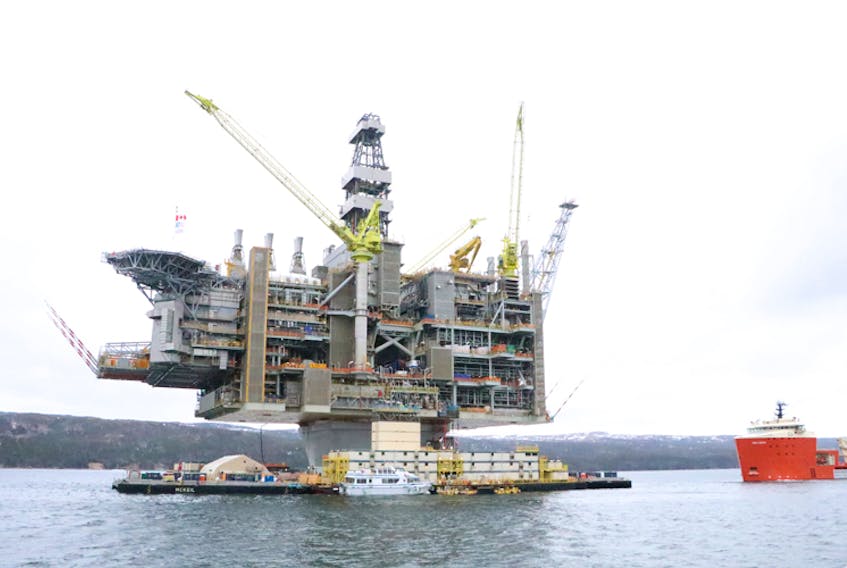ST. JOHN'S, N.L. — What’s the Atlantic Accord? It’s a 1985 agreement intended to allow Newfoundland and Labrador to benefit from our offshore oil resources as if they were on land.
The Accord was revisited in 2005 when it was shown we were not benefitting as we should and we received $3.2 billion following negotiations led by then-Premier Danny Williams.
Under that 2005 agreement, a review must be completed by March 31, 2019 to see where we stand today.
The premier told Noia a year ago he was speeding up that process. Yet, we’ve heard nothing on our negotiating position or the review of whether we’ve been the primary beneficiary since offset payments stopped in 2008.
Here are the details.
The 2005 agreement was an arrangement between Ottawa and the province on offshore revenues. At its core, it meant Canada would provide additional offset payments to Newfoundland and Labrador in respect to offshore-related Equalization reductions. Effectively, it allowed us to retain 100 per cent of our offshore revenues.
Under the renewal provision of the 2005 agreement, a successor arrangement was to be put in place for the period 2012-13 to 2019-20 if the province qualified for an Equalization payment in 2010-11 or 2011-12 and its per-capita debt-servicing charges had not become lower than those of at least four other provinces.
But our province has not been eligible for Equalization since 2008-09. The Equalization formula was revised such that 50 per cent of natural resources were included in a province’s fiscal capacity. That meant our oil revenue reduced our eligibility.
But while our oil is included, Quebec’s hydro is not fully included in calculating their fiscal capacity. While we get no Equalization or offset payments, Quebec is getting approximately $13 billion.
So, here we are, facing a serious fiscal crunch in 2019. More important now than ever is whether we are the principal beneficiary of our offshore. Are we receiving 100 per cent of the benefits we’re due?
A Nova Scotia study in the early 2000s suggested we were receiving just eight per cent of revenues while Ottawa was getting 92 per cent. The 2005 Accord provided upfront and offset payments of $3.2 billion to address that inequity.
However, after the 50 per cent offset for oil resources was incorporated in the Equalization formula in 2007, our per-capita fiscal capacity was deemed to be higher than the national average.
The more our population declined, the more our per-capita fiscal capacity appeared to be improving, simply on the basis of population numbers, without any reference to our needs. The bottom line is the Accord benefits we achieved in 2005 were no longer available to us.
Where do we stand today?
If we’re not the principal beneficiary as intended, then we can use this Accord review (guaranteed by the 2005 agreement) to remedy that. But we’ll need to be well prepared to make our case with detailed analysis of revenues and taxation recovered (or not) by our province.
Are local hiring content standards being met to the level intended? Are our local supply companies the primary beneficiaries in the service sector? Are the required R&D investments being maximized to our benefit?
These are complex negotiations requiring well-prepared negotiators presenting a solid argument supported by the analysis of why the 2005 amendment agreement must be renewed at the very least.
The premier refuses to disclose any details of the review. That’s worrisome.
When Ottawa last year quietly rolled over the current Equalization formula for another five years, bypassing the scheduled 2019 review, there wasn’t a whimper of protest from the Premier or the seven Liberal MPs.
It’s the equalization formula that’s denying us our Accord benefits.
Recently, we heard the premier and MPs speak about Accord reform as a means to mitigate electricity rates. Those are separate issues and should remain so.
We even hear the Atlantic Accord is being renegotiated. The Accord is fundamental to our future and should never be reopened. Such a path would mean negotiating away rights already achieved. Unacceptable.
Let’s see the analysis so we can make a strong, united case for a renewed eight-year Accord agreement beginning in 2020. That renewed agreement must allow us to receive 100 per cent of the offshore revenues we are due.
Keith Hutchings
PC MHA Ferryland
Opposition Finance Critic
Related story:








